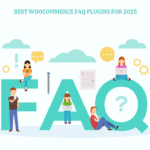
Why Storytelling Is the Secret Weapon of Modern SEO
Let’s face it, SEO has changed. What used to be a game of keywords and backlinks is now a competition for attention, engagement, and trust. And in this new digital landscape, one powerful strategy is standing out more than ever:
Storytelling.
Wait—storytelling? Isn’t SEO about meta tags, technical audits, and link-building?
Yes, but here’s the truth: people don’t remember keywords. They remember stories. And when people connect with your content, Google pays attention.
In this article, we’ll break down why storytelling is becoming a major SEO advantage—and how you can use it to rise above the noise.
SEO Isn’t Just for Robots Anymore
Once upon a time, SEO was all about pleasing search engines. You’d stuff in keywords, crank out robotic blog posts, and wait for the rankings to roll in.
But not anymore.
Google’s algorithm now prioritises user experience, engagement, and relevance. That means your content has to do more than just exist—it has to connect.
This is where storytelling shines. Good stories:
- Keep readers on your page longer (better dwell time)
- Reduce bounce rate
- Increase shares and backlinks
- Boost brand recall and trust
In short, they do exactly what search engines want: deliver value to real people.
Why Storytelling Works for SEO
Let’s look at what storytelling does for your content strategy:
1. It Increases Time on Page
Imagine two blog intros:
Option A:
“Content marketing is a key strategy for businesses in 2025. In this post, we’ll explore 5 tips to get better results.”
Option B:
“Last year, I worked with a small furniture brand that was barely getting any traffic. One blog post changed everything—and it wasn’t even about their products.”
Which one are you more likely to keep reading?
Stories pull readers in. They make your blog more than just a checklist—they make it an experience. And that extra time on the page? It tells Google your content is worth ranking.
2. It Builds Backlinks Naturally
Great stories get shared. They’re more likely to be linked to by bloggers, journalists, and even other businesses.
No one wants to reference another generic “5 SEO Tips” article. But if your post tells a compelling story that supports a point, it becomes a source worth citing.
3. It Encourages Return Visitors
When your content makes people feel something—curiosity, inspiration, relief—they remember you. And they come back.
Returning visitors build your site’s authority in Google’s eyes. It’s a trust signal. And it all starts with content that doesn’t feel like content—it feels like a conversation.
Where to Use Storytelling in SEO Content
You don’t need to write a novel. Just sprinkle storytelling in the right places:
- Blog Intros – Start with a relatable challenge or surprising anecdote.
- Case Studies – Turn stats into a narrative: what was the problem, what happened, and what changed?
- Service Pages – Share the “why” behind what you offer. How did your business come to be? What real problems are you solving?
- Social Content – Use micro-stories to lead traffic to long-form posts.
The key is to be human. Speak like you’re talking to one person, not an audience. That authenticity is what builds a connection.
How to Add Storytelling Without Losing SEO Power
You might be wondering: won’t storytelling make me lose keyword focus?
Not at all—you can blend both. Here’s how:
- Use keywords naturally within your story. Don’t force them.
- Optimize your H1s, meta descriptions, and slugs like usual.
- Keep paragraphs short and skimmable, even if you’re telling a story.
- Use storytelling to frame your SEO points, not replace them.
For example, say your target keyword is “technical SEO audit.” You could start with:
“A few months ago, a client’s traffic dropped overnight. Panic mode. They thought they were penalized—but it turned out they just needed a technical SEO audit.”
You’ve hit the keyword. But more importantly, you’ve created context that makes it compelling.
Final Thoughts: SEO That Sounds Like a Real Person
In a world where content is everywhere, the most human content wins.
If you’re still writing blog posts like instruction manuals, you’re leaving value—and rankings—on the table. Storytelling adds emotion, context, and connection to your SEO strategy. It turns readers into followers. Clicks into customers.
And best of all? It makes your job more fun.
So next time you’re writing an SEO article, don’t just think about the search engine. Think about the person on the other side of the screen.
Tell them a story worth staying for.
Need SEO content that connects?
At OutreachSEO, we blend strategy with storytelling to create content that ranks and resonates. Let’s make your content unforgettable.



